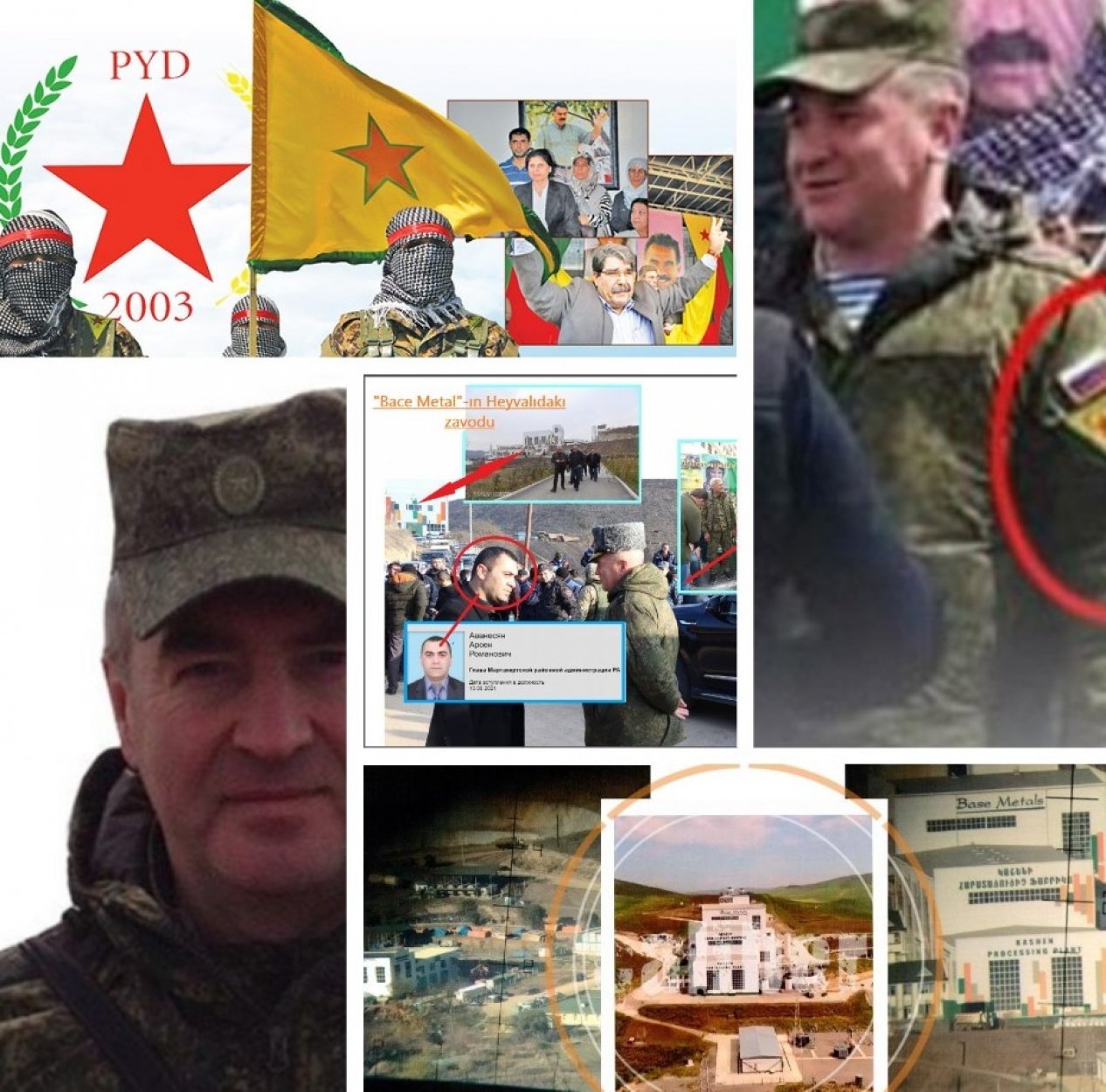
The commander of the Russian peacekeepers temporarily stationed in the liberated territories of Azerbaijan, Major General Andrey Volkov, previously had "worked" as the commander of Russian troops in various military camps, and hot spots (Afghanistan, Chechnya), especially in Syria.
There are enough facts that in 2017, under his leadership, the Russian military contingent supported other terrorist groups under the guise of fighting the ISIS group in Syria. Irrefutable facts about Volkov's warm relations with the YPG and PYD armed groups, which are considered the Syrian wing of the terrorist organization PKK, were published in the Turkish media, and the intelligence agencies of Turkiye conveyed their objections to Moscow regarding these facts.
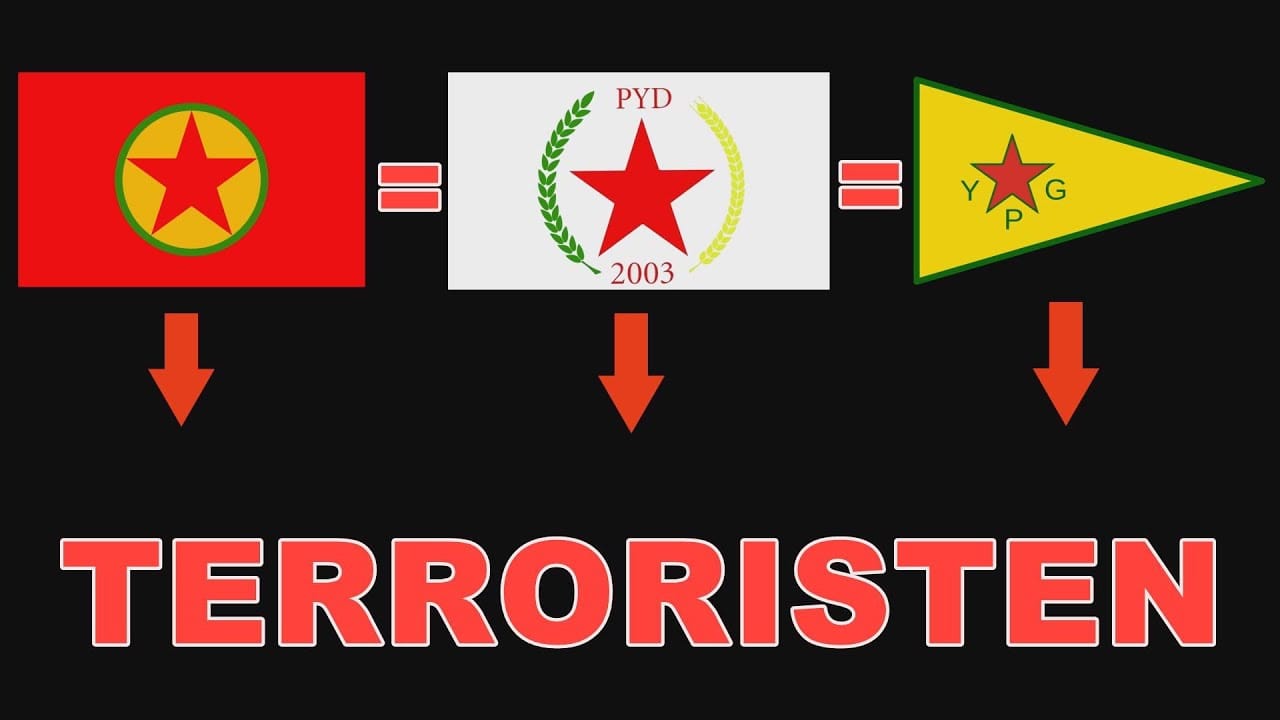
It is clear that the organizations mentioned above have been recognized as terrorist groups by various countries' intelligence and security agencies. On the official website of the US Central Intelligence Agency (CIA), the PYD/YPG is listed as a "foreign terrorist organization" as an extension of the PKK/KCK in Syria. In 2013, NATO recognized the PYD as the Syrian wing of the PKK terrorist organization. Great Britain also expressed concern about YPG and PYD relations with the PKK and stated that they initiate terrorist acts. Quote: "PKK is a terrorist organization, and PYD is also connected with it. If you go to the office of the PYD, you will see portraits of Abdullah Ocalan there." Germany, the Netherlands, Spain, Italy and other countries have pointed to strong ties between the PYD, the YPG and the PKK and supported Turkiye's anti-terror operations in that region. reference
Faktyokhla Lab investigated the activities of Volkov, the commander of the Russian peacekeepers temporarily stationed in the liberated territories of Azerbaijan, in Syria.
How did the Russian major general connect with PYD and YPG, what unites them?
Taha Dağlı, a well-known researcher-journalist of the Turkish media who has gained rich experience in the fight against terrorism in Syria, gives a laconic answer to this question. In his article, the investigative journalist mentions the behind-the-scenes aspects of Russia's cooperation with the PYD and YPG: In Turkiye's fight against terrorists, Volkov prevented the joining of the "Azez-Jarabulus" line with Latakia, Idlib, Aleppo, Raqqa, controlled by the local liberation forces of Syria and the Free Syrian Army (opposition). The goal was for the PYD-YPG to remain in control of this corridor, starting from the Mediterranean Sea, continuing through Latakia, Idlib, Aleppo, Raqqa, and extending from Hasaka to the border of northern Iraq because that corridor has immense military-geographical advantages.
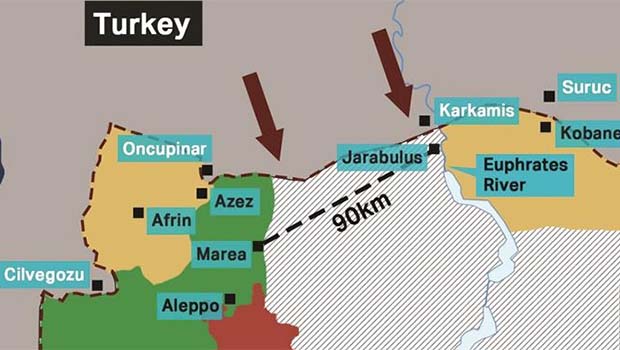
Since the Russian military controlled the Latakia part of the corridor, the PYD's open trade in the region was ensured with their help. The PKK sold the region's drugs, weapons, jewelry and artifacts to various European countries along that geographical route. Seizing that line can close the arm of the PKK. Therefore, Volkov stood behind the PKK in this trade. reference
Thus, Volkov's friendship with the YPG and PYD arose after Russian troops entered the Afrin region in March 2017 and established a large military headquarters in Aleppo. Instead of ensuring stability and security in this area, Volkov was engaged in training and arming the PYD and YPG, and as researcher-journalist Taha Dagli emphasized, he supported the activities of a sizeable criminal-terrorist network. source
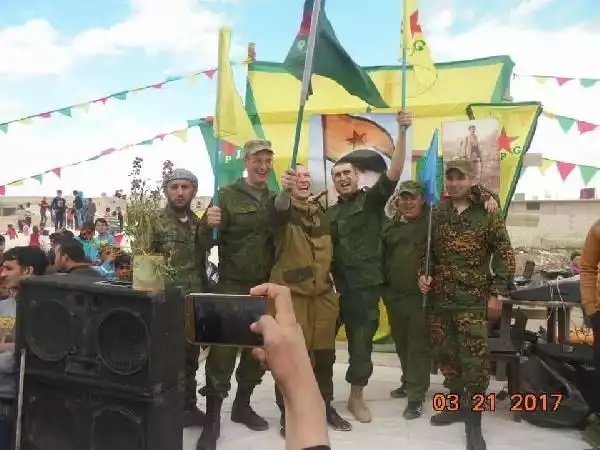
Although we can see this from Andrey Volkov's statement after the meeting with the Kurdish armed forces in the first days of his entry into Afrin. Quote: "We came to the city of Afrin to show the presence of the Russian flag. The local population will be in our area of responsibility. Mutual action will be organized with them to make the Syrian border indestructible." When the Russian general said "they", he meant YPG and PYD, which united the scattered Kurdish armed forces in Syria under the banners of Abdullah Öcalan.
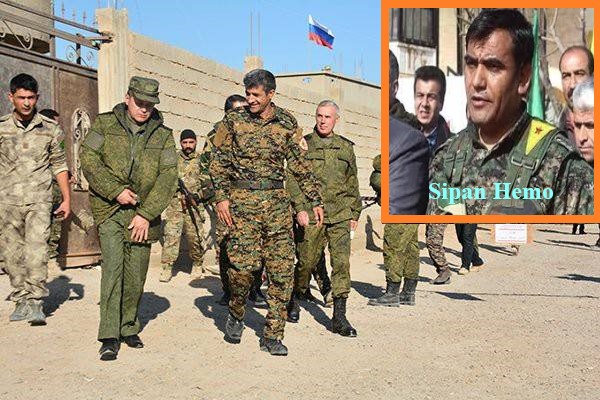
Acknowledging their direct ties with Russia, Volkov said that they were trained by the Russian Army. Several YPG representatives confirmed these facts. Redur Khalil, the spokesman of this terrorist group, also confirmed that Volkov joined the YPG "commander-in-chief" Sipan Hemo in a military alliance and described their close contacts with the Russians as follows. Quote: "Russian forces are present in the western Kurdish canton of Afrin as a result of an agreement reached with our forces and we have direct relations in the field of military training of our fighters. We are allies on this front." reference
Russian media outlets also drew attention to the meetings of Russian troops led by Volkov with the Syrian Kurdistan People's Self-Defense Forces (YPG) in Syria, stating that he was conducting "monitoring" in different parts of Afrin together with the terrorist YPG. It is clear from the report of Nezavisimaya Gazeta that Major General Andrey Volkov personally participated in these "operations". The newspaper confirmed that he was training the YPG, giving assignments and training new fighters for this terrorist organization.
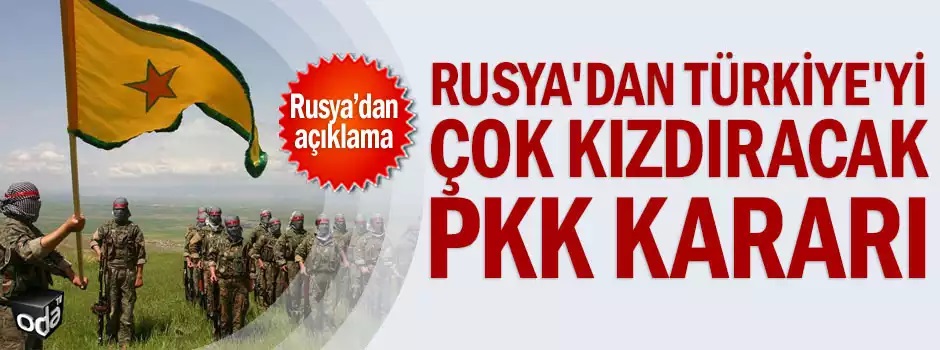
It seems that Andrey Volkov continuously participated in joint meetings and parties with the PYD in Aleppo, Afrin, and Manbij. He participated in the Nowruz festivities in Afrin and took shots expressing his special respect for the YPG and YPJ flags. At that event, he wore the "chevron" of the YPG on his arm. In front of the portrait of Abdullah Öcalan, the founder of the PKK, whose hand was soaked in the blood of tens of thousands of people, he took a memorial photo with the terrorists.
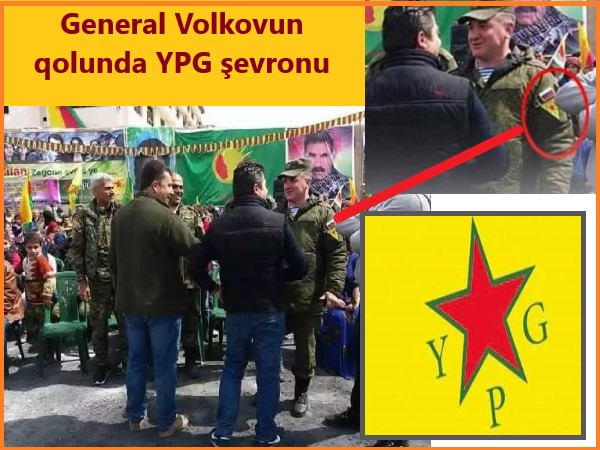
The US military took an active part in the battles for and liberation of the city of Palmyra, which is considered a rare art temple of Syria and humanity and has a history of 2,000 years. After the Russians entered this city in 2016, ignoring all international pressure, they started preliminary work to build a military base in Palmyra, and the demining team that entered the area did not let anyone into the city. reference
Palmyra was famous for its gold and riches. There are enough photo-video facts about the looting of the city either during the ISIS usurpation or after its liberation. Sculptures and paintings, columns and arches, busts worth millions of dollars were not found even after the liberation of the city. Access to the city was forbidden due to the "supervision" of minesweepers, where the Russians were looking for mines and other rare finds. source
The fact is that Andrey Volkov, who was appointed commander in 2017, was also in this area regularly. We do not have concrete facts about the role of Andrey Volkov in the disappearance of the rare pearls of the mentioned ancient art monument. But now we have information about his connections with Ruben Vardanyan in the looting of the Gyzylbulag deposit in Azerbaijan's Aghdara. reference
Meanwhile, a photo of General Volkov on social media caught our attention.
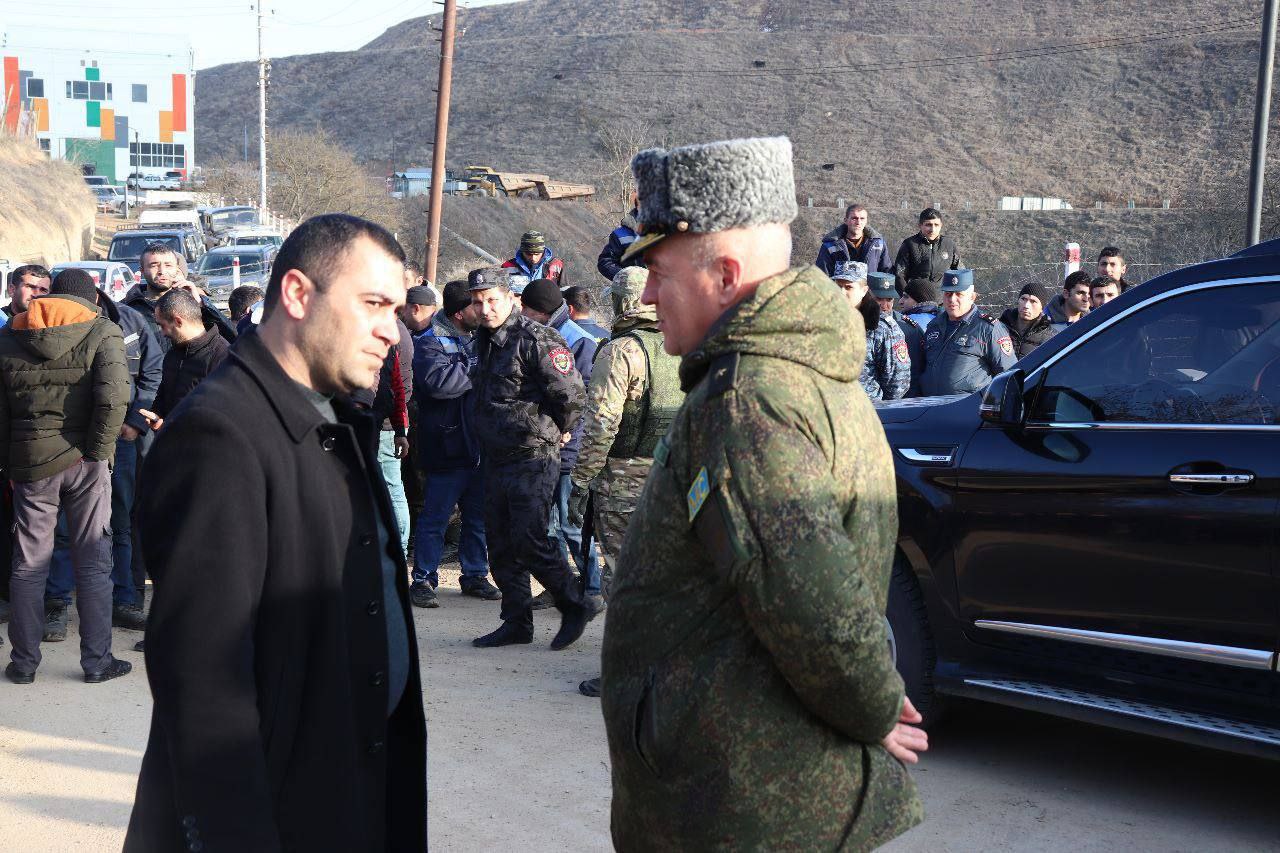
In this photo, the Russian general is talking to a person in front of the entrance of the Base Metal company, which is engaged in illegal extraction, processing and production of minerals, in Heyvali (Armenians call it Drmbon) village of the Aghdara district of Azerbaijan. That person is Arsen Hovanesyan, who led the protest of Armenians preventing Azerbaijani ecologists from conducting monitoring in the mentioned area on December 9, 2022.
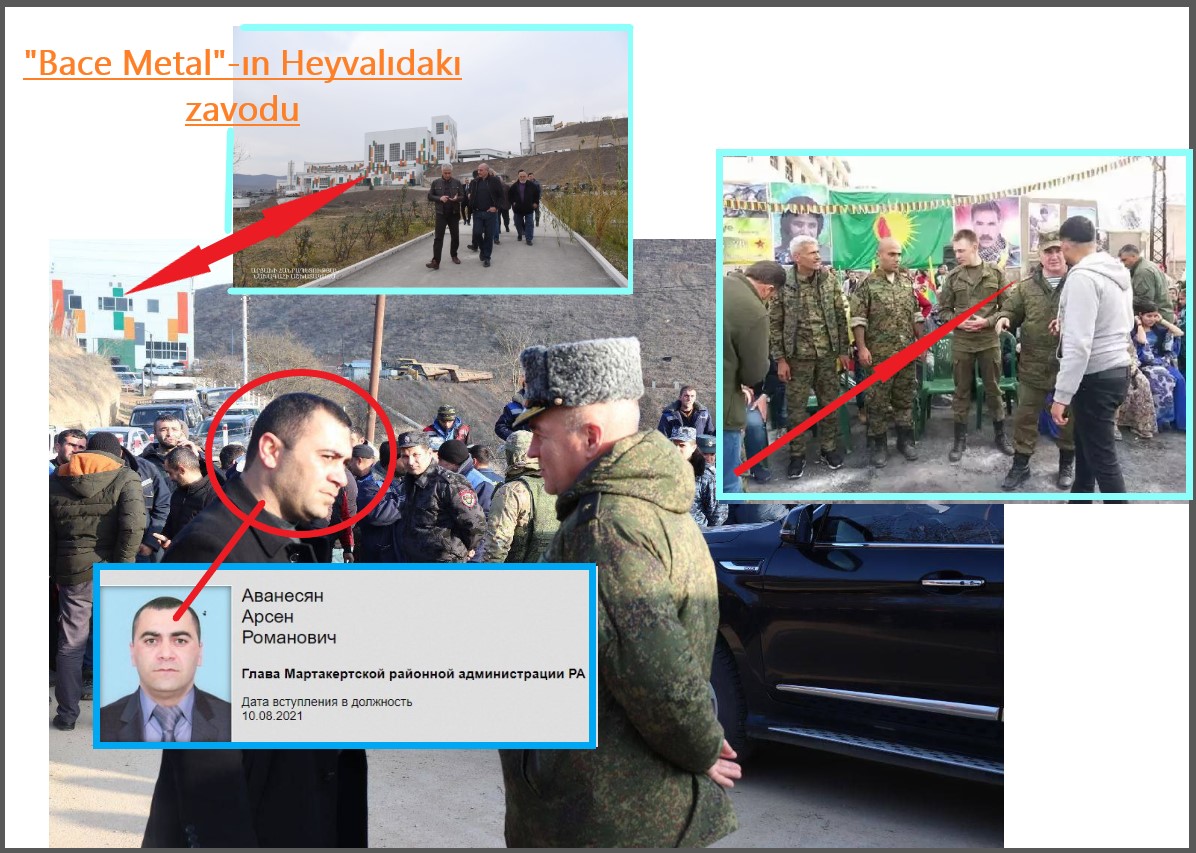
Currently, he is the head of the "administrative" division of the Aghdara region. After doing some searching in open sources about this person, we were able to determine his true identity. It turns out that the primary job of Hovanesyan, disguised as a civilian, was at the Headquarters of the Armenian Armed Forces, Military Intelligence Department. After serving in the illegal military units in Karabakh in 2002-2004, he was recruited to work in the military intelligence department of the Armenian Army. In 2014-2019, he rose through the ranks and received the rank of lieutenant colonel. For this reason, it is not surprising that someone who works in the real estate cadastre of a so-called institution receives military awards (orders and medals). In 2016, he was awarded the 1st class medal "For Valor" and in 2019 "For Meritorious Service" by order of the "Minister of Defense".
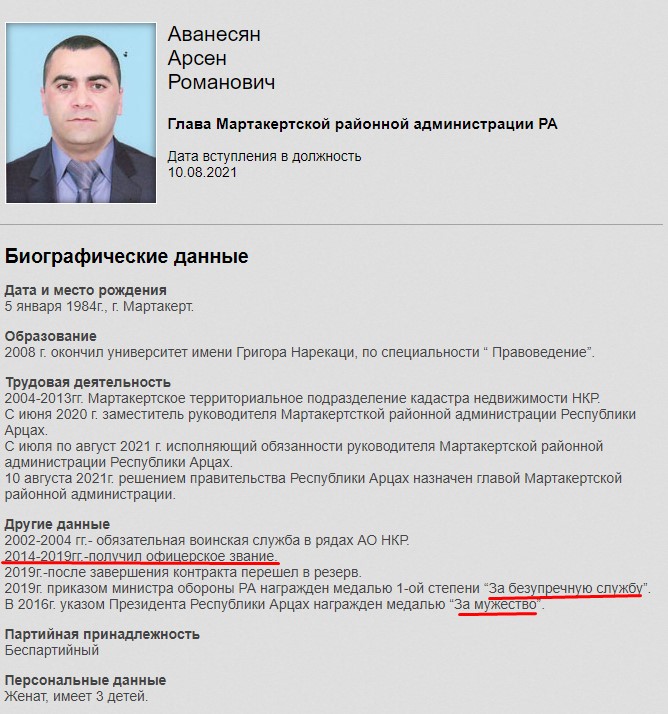
There is no fundamental difference between General Volkov taking a picture with a terrorist in Aghdara or Afrin. Both photos represent peacekeepers, and both images show friendly relations with terrorists.
However, although Andrey Volkov rose to the rank of major general, he was always recognized as a failed soldier. Though Volkov went to Syria with a "peacekeeping" mission five years ago, his cooperation with the terrorist gang and attempts to activate the PYD-YPG against Turkiye did not remain unanswered by the Armed Forces of Turkiye. Volkov returned to Russia after the Turkish Army cleared Afrin and Manbij of terrorists with the successful Euphrates Shield and Olive Branch anti-terrorist operations and dealt a heavy blow to the YPG. His planned 5-year "peacekeeping" mission in Syria ended in 3 years. Currently, the peacekeepers are in their 3rd year in liberated Karabakh...




















